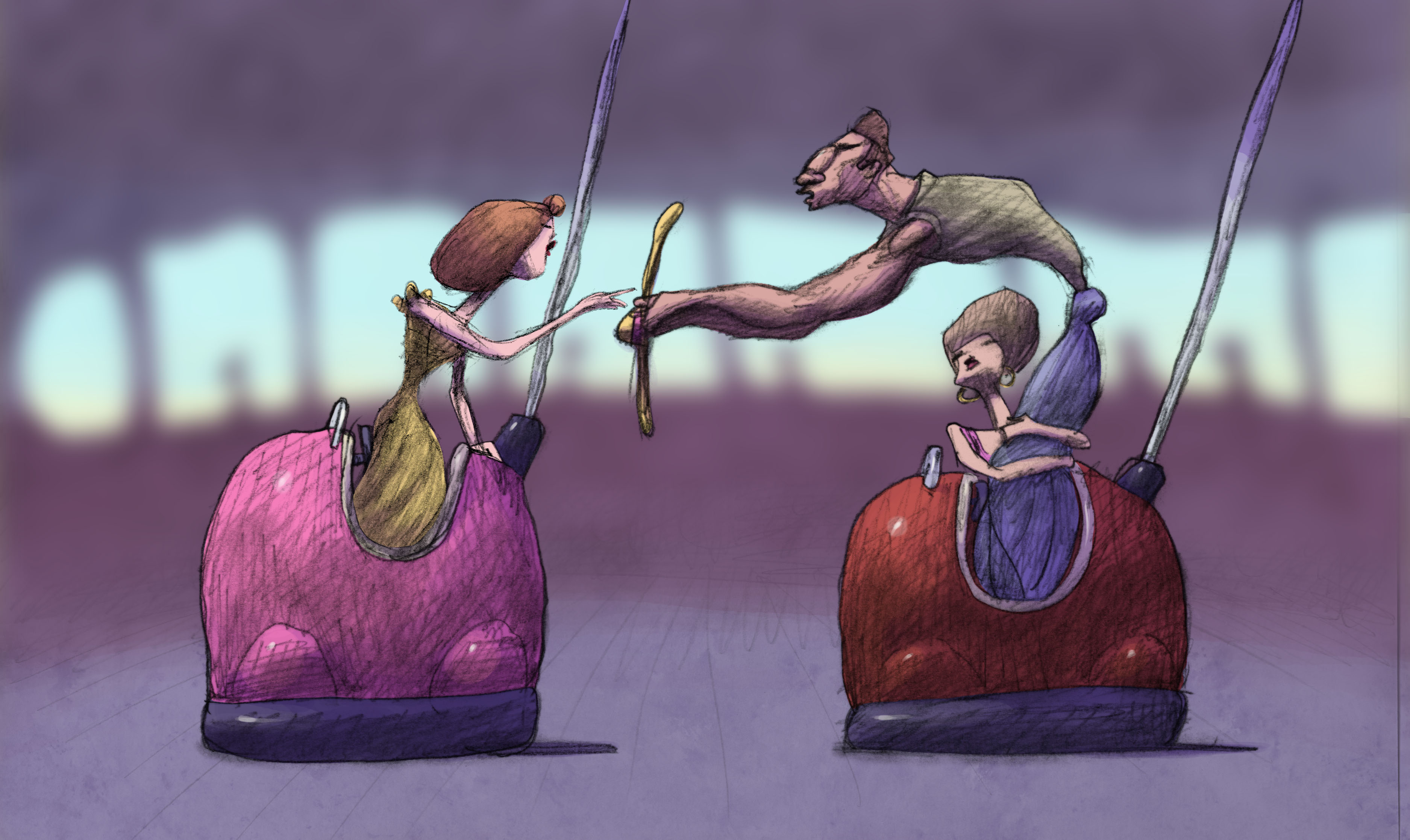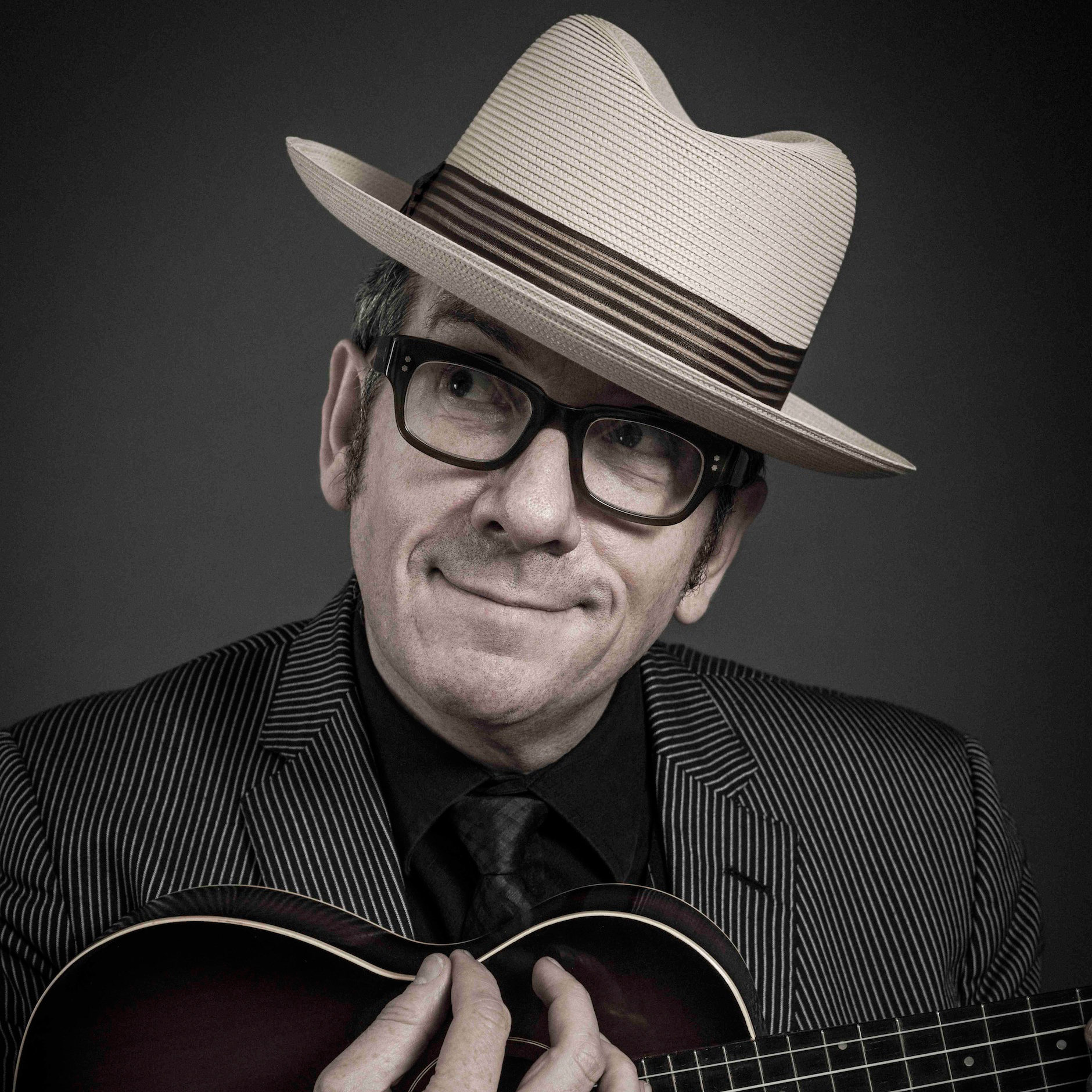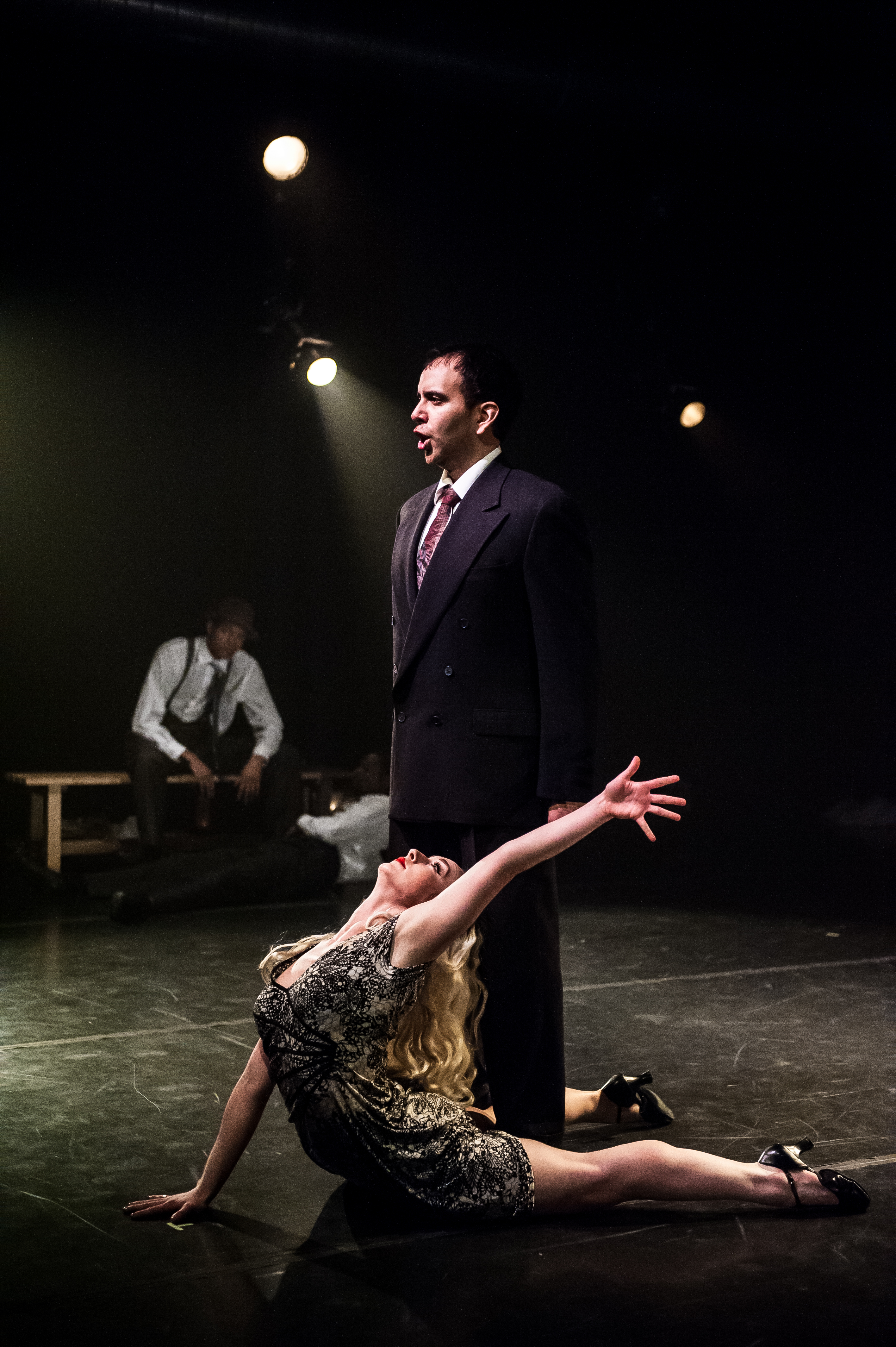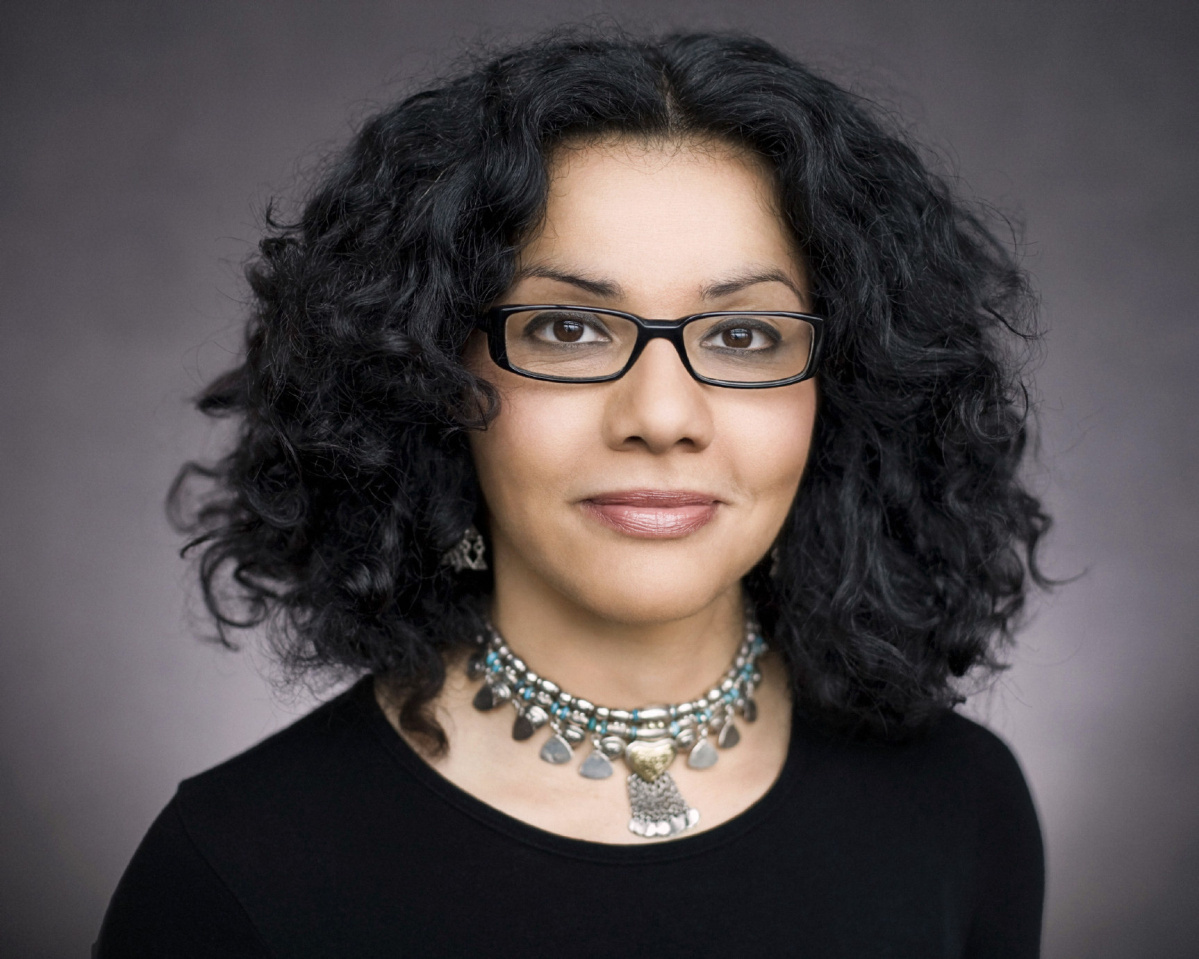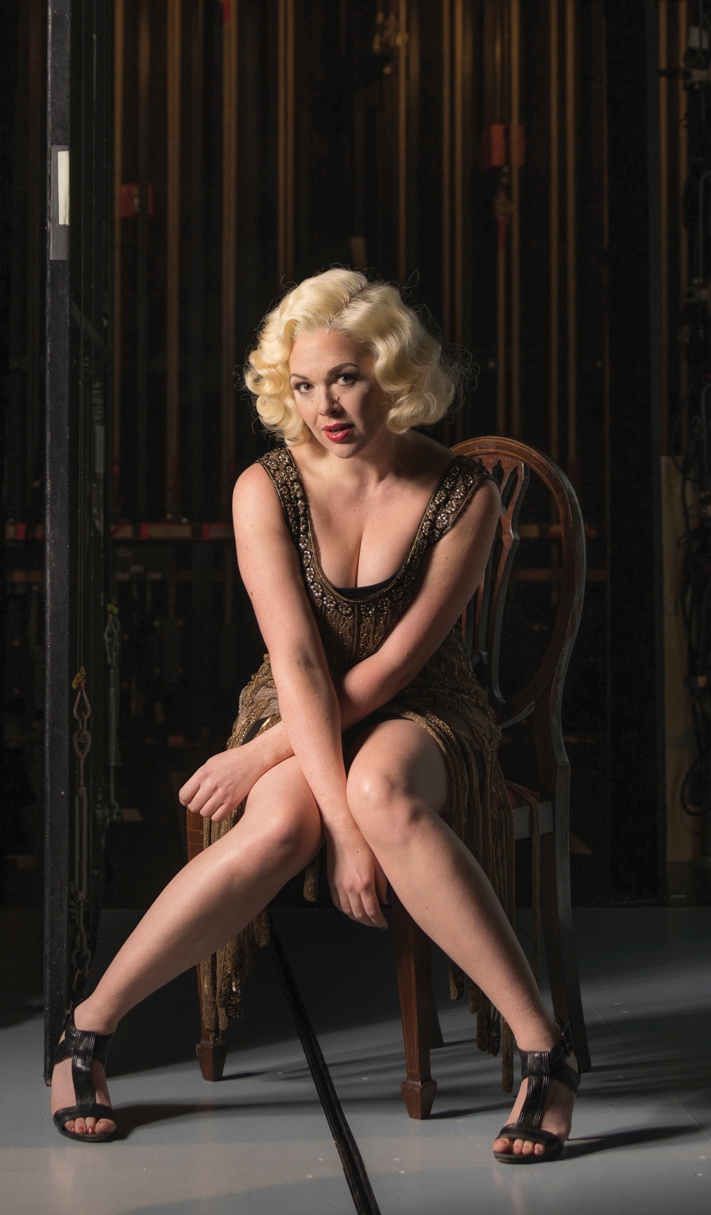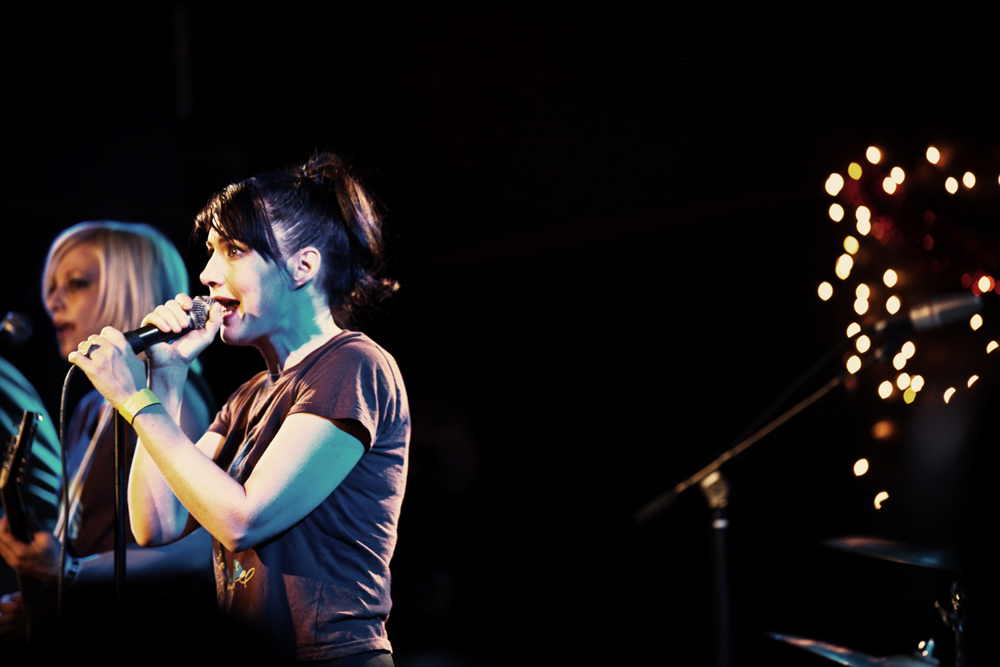Thursday, April 23
Spectrum Dance Theater
Ever since the debut of Carl Orff’s Carmina burana in the 1930s, choreographers have been seduced by its rhythms and its bawdy medieval text. Usually the results come out like the best trip to the Renaissance fair, but Donald Byrd likes to switch things around; his version is more revival meeting than May Day festival. Using a piano reduction of the score, Byrd focuses on a singular Everyman who sins and seeks redemption in Spectrum Dance Theater’s different approach to a well-know work. (Through Sun.) The Moore, 1932 Second Ave., 877-784-4849, stgpresents.com. $30–$40. 8 p.m.
SANDRA KURTZ
Friday, April 24
Slither
A pitch-perfect work of B-grade zombie-flick schlock, the 2006 Slither is way more enjoyable than it should be, thanks to a slew of gut-busting one-liners and a devilishly entertaining performance by veteran tough-guy character actor Michael Rooker. Playing a small-town South Carolina tycoon who morphs into a carcass-eating, Fat Bastard-sequel squid-man after having his chest penetrated in the woods by alien ringworms, Rooker comes off as a hilarious cross between Jeff Bridges’ character in Starman and Phil Hartman’s Unfrozen Caveman Lawyer. It also doesn’t hurt that Elizabeth Banks, playing Rooker’s much younger gold-digging trophy wife, is hotter than Georgia asphalt. But beneath Slither’s gory sheen lies a cautionary tale: Marry for love, and things will break your way; marry for money, and your husband will turn into a jealous, bloodthirsty, cattle-devouring murderer. (Through Tues.) Central Cinema, 1411 21st Ave., 686-6684, central-cinema.com. $7–$9. 9:30 p.m.
MIKE SEELY
Saturday, April 25
How to become a partisan
Since she arrived in Seattle from her native Italy in 2004 to attend the UW, choreographer Alice Gosti has been defying expectations and remaking conventions. More often than not, you’ll see her work in a space where you wouldn’t expect dance to be happening—like Airport Project, a solo she performed at airports in Reykjavik, Detroit, Frankfurt, and Seattle from 2006–08. Her latest work begins as a participatory audience march leading to a church, where the performance will commemorate Italy’s April 25 National Liberation Day (the formal end of World War II). To research the piece, she traveled back to Italy to interview the aging few former WWII resistance fighters who had the courage to battle Mussolini and the Nazis. “What made you decide to act?,” she asked. And “How did you know what to do?” For the five-hour show, her interview texts become a libretto of sorts for the music, composed and performed by Hanna Benn (of the group Pollens and the St. Mark’s choir). Around Benn, an ensemble of dancers will respond to the interviewees’ answers. The processes those partisans describe—deciding the moment when a diverse group of individuals becomes an organized force—will structure the ensemble’s movements. (By odd historical coincidence, Gosti learned, St. Mark’s was used as a temporary barracks and anti-aircraft-gun training center during WWII.)Start: 3:30 p.m. Velocity Dance Center, 1621 12th Ave., 325-8773, velocitydancecenter.org. $12–$20. Performance: 4 p.m. St. Mark’s Episcopal Cathedral, 1245 10th Ave. E.
SANDRA KURTZ
Craig Sheppard
In the through-the-looking-glass world of the Soviet Union under Stalin, Dmitri Shostakovich’s 24 Preludes and Fugues for piano were politically incendiary because they were politically noncommittal. What offended the Soviets so? The cycle’s seeming abstractness. This set of 24 fugues (works that present and develop musical themes via the layering of in[ter]dependent melodic lines), each in a different major or minor key and each prefaced by a free-form prelude, was condemned as “formalist.” But what perceptive listeners noticed in 1951, and what has engrossed pianists and audiences ever since, is the extraordinary wealth of expression Shostakovich evoked within structures of such dazzling complexity and craftsmanship—namely, “the irony, the sarcasm, the tragedy,” as UW pianist Sheppard describes it. Tonight he’ll play the entire set of 24—two and a half hours of music—which he unhesitatingly calls “the greatest solo piano pieces of the 20th century.” Meany Hall, UW campus, 543-4880, music.washington.edu. $12–$20. 7:30 p.m.
GAVIN BORCHERT
Norma Miller
When you think about swing dancing, and picture a woman at the apex of a lift, zooming over the head of her partner, you’re seeing Norma Miller. One of the original Lindy Hoppers, Miller helped develop the high-octane dance style, appearing in films and nightclubs as part of a specialty act that spent more time in the air than on the ground. Most of that airborne crew is gone, but Miller is still around—teaching, coaching, and telling fabulous stories about wonderful times. She’s touring with a new documentary about her life, The Queen of Swing, and you can ask her questions tonight and help her celebrate her 95th birthday. The Studios, 1801 Fifth Ave., 582-3878, thestudios.org. $30. 6 p.m.
SANDRA KURTZ
Sunday, April 26
Elvis Costello
Though many solo acts have toured a stripped-down version of their band show to keep things interesting after decades on the road, few have a back catalog with the breadth and depth of Costello’s. From new wave to power pop, jazz to classical, the British bandleader has been a genre-hopping, critic-delighting musical hurricane for nearly 40 years. He’s rebellious and surly, studied and dignified—as comfortable paying tribute to Joe Strummer as he is crooning with Burt Bacharach. Not all of Costello’s explorations have been knockouts, of course, but across his 40-plus albums, his successes far outstrip the misses, whether he’s being backed up by punks or a string quartet. For this tour, Costello will be backed up by no one, accompanied onstage only by a selection of favorite guitars and a grand piano, all set in front of a massive CRT television. Set lists from the tour clock in around 30 songs, which include some of the expected hits, but also gems from deep in the catalog. In addition to some covers that help the frame the show, Costello will wax nostalgic and show videos that tell the story of his musical life. And what a rich one it is. The Paramount, 911 Pine St., 877-784-4849, stgpresents.org. $41–$71. 7 p.m.
DAVE LAKE
Tuesday, April 28
Joseph Stiglitz
Should Hillary take up the income-inequality battle, like Sen. Elizabeth Warren, or, like the Republicans, run away from it? Many thought the Democrats could’ve fared better during the 2014 midterms had they assailed income inequality—a proven 30-year trend—and defended the Affordable Care Act (which, by averting catastrophic medical bills, helps the middle class remain middle class). After The New York Times’ Paul Krugman, our leading voice against income inequality is the Nobel Prize-winning economist Stiglitz, and he detailed his arguments comprehensively in 2012’s The Price of Inequality: How Today’s Divided Society Endangers Our Future (with a new preface in its latest paperback reissue, Norton, $13). Obviously his diagnosis didn’t tip the 2012 election in Congress, with the Tea Party/Obamacare backlash still driving the GOP’s recent wave of success. Looking forward to 2016, Stiglitz forthrightly advocates for more government regulation of financial markets. The postwar boom that lasted into the ’70s was an aberration, he writes. After that, “Some drew the wrong lesson from the collapse of the Soviet system. The pendulum swung from much too much government there to much too little here. Corporate interests argued for getting rid of regulations, even when those regulations had done so much to protect and improve our environment, our safety, our health and the economy itself.” We’ll see if Hillary is listening or not. T
own Hall, 1119 Eighth Ave., 652-4255, townhallseattle.org. $5 (sold out, with standby tickets only). 7:30 p.m.
